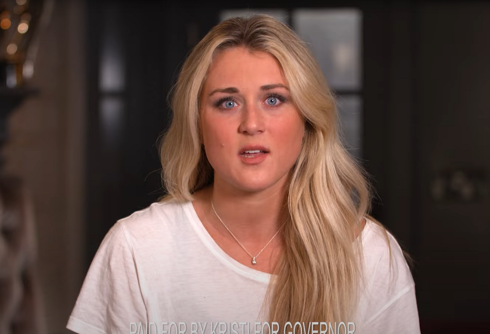Edith Windsor, the New York widow who was forced to pay $363,000 in estate taxes in 2009 upon the death of her spouse, Thea Spyer, made her case to the U.S. Supreme Court on Tuesday, filing a brief in her challenge to the federal Defense of Marriage Act (DOMA).
In the brief, Windsor’s legal team — led by Roberta Kaplan of the Paul Weiss law firm — argued that DOMA’s denial of Windsor’s marriage to a woman is unconstitutional, and demanded that the Court strike down the 1996 law.

Windsor and Spyer had lived as a couple for 44 years and married in Canada in 2007. Because Windsor’s decades-long partner was a woman, the federal government did not recognize the same-sex marriage in legal terms, even though their home state of New York did.
“As this court has already recognized, laws burdening lesbians and gay men that were ‘once thought necessary and proper’ may in fact ‘serve only to oppress,'” Windsor’s lawyers wrote in the brief.
“Gay couples like Ms. Windsor and Dr. Spyer marry for the same reasons straight couples do — to express their love and commitment to each other.”
The brief also argues that DOMA fails a rational basis review, and serves no legitimate federal interest.
Never Miss a Beat
Subscribe to our newsletter to stay ahead of the latest LGBTQ+ political news and insights.
DOMA does not encourage uniformity in the administration of federal benefits. To the contrary, it creates disuniformity by treating legally married couples differently even within the same state of domicile.
DOMA does not save the federal government money and, even if it did, that would not be a permissible rationale … for choosing to exclude married gay couples.
[…]
DOMA was enacted out of “insensitivity caused by simple want of careful, rational reflection or from some instinctive mechanism to guard against people who appear to be different in some respects from ourselves.” […] The Act was rushed through Congress at a time when there was no realistic prospect of gay couples getting married in the near future anywhere, even in Hawaii.
The legislative history is replete with language of panic and fear, as well as stereotypical thinking about the purported dangers of gay people or their relationships.
Congress gave no consideration to the ways DOMA would impact the thousands of federal programs implicated. It made no attempt to assess DOMA’s impact on the federal budget. It expended no effort to address the obvious irrational consequences of DOMA’s sweeping applicability, such as DOMA’s exclusion of married gay couples from federal financial disclosure requirements or conflict of interest rules.
The very language of its title indicates that DOMA was enacted to defend or “guard against” people who appear to be different.
On Friday, the Obama administration also filed a brief in the case, and said that “gay and lesbian people have been subject to a significant history of discrimination in this country,” and argued that laws targeting individuals based on their sexual orientation should face additional scrutiny by courts reviewing them.
Article continues below
Section 3 of DOMA, which bars legally married same-sex couples from any federal benefits or programs based on marriage, has been found unconstitutional in eight federal courts, including the First and Second Circuit Court of Appeals, on issues including bankruptcy, public employee benefits, estate taxes, and immigration.
The U.S. Supreme Court has scheduled to hear oral arguments in the case, United States v. Windsor, for March 27.













